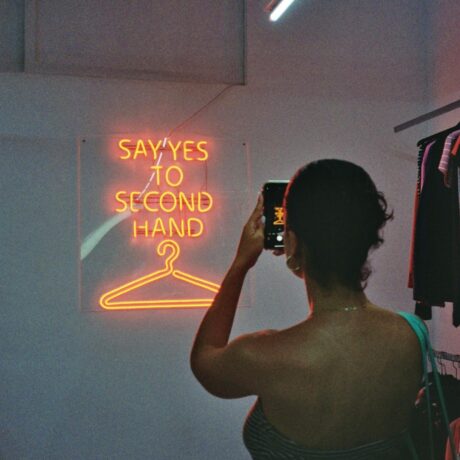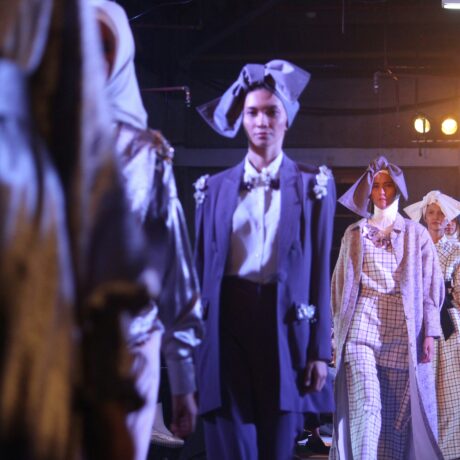Exploitation or emancipation? Women workers in the garment industry
The garment industry is and has historically been one of the most female-dominated industries in the world. Today, more than 70% of garment workers in China are women, in Bangladesh the share is 85%, and in Cambodia as high as 90%[i]. For these women, development is closely linked to their conditions at work. It’s about gaining a decent pay, working under dignified conditions and having basic work security. It’s about moving out of poverty, being able to provide children with education, and to become more independent and grow as an individual.
The reality for most garment workers in the Global South is far from here. Although producing for some of the most profitable companies in the world, they are working for poverty wages, under dreadful conditions, and they have to undertake an excessive amount of overtime. In Bangladesh (the world’s second largest exporter of clothes) the minimum wage for garment workers is 5,300 taka (£45/€62) per month which is far from the 8,900 taka (£75/€104) that are needed to cover a worker’s basic needs, and even further away from a living wage. Many garment workers are working between 60 and 140 hours of overtime per week and it is common to be cheated of the overtime pay. Health and safety are often neglected, workers are denied breaks, and abuses are common – to mention a few of the problems in the industry[ii].
Yet, there are some who argue that this exploitation is the road to female empowerment. Historically, women’s integration into paid work has been one of the important forces to emancipation and growing gender equality. Liberal writers such as Leslie T. Chang, argue that the globalised garment industry has had this empowering effect as women from poor backgrounds are able to find work and earn a salary[iii]. In similar vein, social economist Naila Kabeer emphasises how work in the garment industry has allowed women in Bangladesh to gain recognition for their economic contribution for the family, and that garment workers tend to be more conscious about their rights and have a more critical mindset than other women[iv].
These gains are important to recognise. Still, there are reasons to be sceptical about the transformative potential that garment work has for women in the Global South. Firstly, it is important to understand the way in which women have been integrated to the industry. In the neoliberal deregulated global economy, developing countries are competing to produce for multinational brands by offering the lowest costs and the fastest and most flexible production. In a labour-intensive industry such as garment, this is mainly achieved by making labour cheaper and more flexible, that is, by paying lower salaries, push for longer hours, and reducing work and environmental standards.
Women’s integration to the garment factories has played a crucial role in this process. Factory owners have been taken advantage of women’s unequal position in society to form an even cheaper, more docile and flexible work force. So, rather than challenge their subordination in society, work in the garment industry is reproducing it. Women tend to earn significantly less than men, they face systematic discrimination, and they are only able to access the lowest paid jobs with very poor prospects for promotion. Many of them have low work security, and if they are not prepared to work on the terms set out by their employers they run the risk of losing their jobs[v].
The exploitation of women workers has allowed European fashion companies to make huge profits while denying the workers who produce their clothes the most basic rights. By outsourcing production, these companies are able to both step away from their responsibility and to play producers against each other to get the best and most profitable deal. The deregulated nature of the global economy makes worker’s legal protection very thin and their right to organise and bargain collectively is constantly restricted.
Despite these challenges, there are many women who are mobilising into unions and other labour movements to challenge the inequalities and exploitation in the garment industry. From Bangladesh, to Cambodia and Honduras, workers are defying threats, violence, social oppression and powerful capitalist forces in order to defend their basic rights. Their struggle is key for the development of the workers, their families and whole societies. It also has an important empowering effect for women who commonly are marginalised and discouraged to act politically. This could allow real emancipatory change for women and the chance to move out of poverty and become stronger, more independent individuals.
The citizens of Europe have an important part to play in their struggle. Garment workers need resources and support to confront the powerful forces that they are up against, and there are many organisations that are working on these issues, including Clean Clothes Campaign, War on Want and TRAID. By supporting them we can make an important contribution for the garment workers’ fight. We can also act in solidarity with garment workers by putting pressure on the European firms – notably to pay up for the production and ensure that production is not going to be moved to a new location if labour prices go up. Toothless CSR policies are not enough. We need real commitments from fashion companies and they have to stop counteracting the struggle of garment workers.
Moreover, we must campaign for changes in the global garment industry to stop large fashion retailers from playing producers against each other. Profits can no longer come to any price. Ethics and the environment have to be brought into the centre of the debate and we need to show that, as European citizens, we do not accept the violations that are taking place in the garment industry. European fashion brands should become accountable for the human rights abuses that are taking place in their supply chains, and they should be obliged to ensure that fair wages and work conditions are met. Organisations such as CORE and European Coalition for Corporate Justice are currently campaigning for these changes on national and EU levels, and by supporting them we can make their campaigns grown larger.
Coming back to the initial question of development, the garment industry could have a great potential as an emancipatory force for women in the Global South. However, as we have seen, work in in itself is not sufficient for creating development and challenge gender inequality – the nature of work is as important and this has to be urgently reconsidered. The most important source for that change comes from the garment workers themselves, but the people in Europe has an important role to play by supporting their struggle and campaigning for legislative change on the national and EU levels. Together we can build strength and push for a fairer and sustainable fashion industry.
Emilie Schultze, MSc graduate in Development Studies, SOAS University of London
Photo credits: Rainbow Collective
[i] Rock M. (2001) p. 34 in ‘The rise of the Bangladesh Independent Garment Workers’ Union (BIGU)’ in Hutchison J. and Brown A. (eds.) Organising Labour in Globalising Asia, London and New York: Routledge; Hilary J. (2013) p. 110 in ‘The Poverty of Capitalism: Economic Meltdown and the Struggle for What Comes Next’, Pluto Press: London
[ii] Bloomberg, Bangladesh raises minimum wage for garment workers after unrest. Available at: http://www.bloomberg.com/news/articles/2013-11-13/bangladesh-garment-factories-to-stay-shut-amid-worker-protests
War on Want (2011) p. 4 in Stitched Up: Women workers in the Bangladeshi garment sector, London: War on Want
[iii] Chang L. Ted Talk, The Voices of China’s Workers. Available at https://www.ted.com/talks/leslie_t_chang_the_voices_of_china_s_workers?language=en
[iv] Swedwatch (2012) p. 23-24, A Lost Revolution? Empowered but Trapped in Poverty. Women in the Garment Industry in Bangladesh Want More, Stockholm
[v] WIEGO website, Garment Workers. Available at: http://wiego.org/informal-economy/occupational-groups/garment-workers











